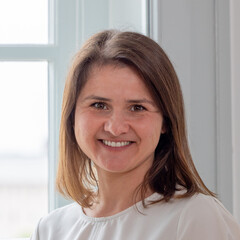MAN 639: TRANSFORM – Innovation & Entrepreneurship for Sustainability
no offering in spring
Contents
TRANSFORM is a collaborative 4EU+ course on innovation and (social) entrepreneurship for sustainable development. It will be offered by a team of lecturers across the Universities of Heidelberg, Warsaw, Sorbonne, Copenhagen, and Mannheim. The course will introduce the concepts of: open and frugal innovation, strategic thinking for social problem solving, scaling sustainable solutions, and measuring societal impact. TRANSFORM offers students a unique opportunity for intercultural exchange, critical thinking and pro-active learning.
The course consists of four modules (innovation, strategy, scaling, and impact). Throughout the semester students will team up in groups across universities to create service, product or process innovations that address a sustainability challenge (course project). After an introduction of the key concepts, students analyze and examine how these concepts can be applied to their course projects. Therefore, the course does not only provide a strong theoretical foundation, but also allows students to gain valuable insights into the concrete application of concepts through a hands-on and practical approach. Lecturers from the participating universities conduct classes in their respective areas of expertise and jointly mentor student teams.
The course builds on the previously established “Accelerating Investment Readiness” MOOC (#AirMOOC, see https://youtu.be/yPUVuh_uFgg), but extends its contents significantly. It takes place online with students from all universities. The sessions alternate between content and application, allowing students to work on their projects regularly. At the end of the semester students present their results and write an assignment. The best student outputs will be featured on the public online platform the team of lecturers will build for the contents to be used by other university educators globally. The platform will also provide all contents to students.
Learning outcomes
Praxis-oriented:
- Participants will gain a thorough understanding of how to create, manage and grow an impact-oriented organization, how to measure its impact and develop and maintain an impact orientation.
- A high practitioner orientation is ensured in particular through including contents from MOOCs, case studies and other material.
- Participants will learn about currently much discussed phenomena of impact orientation and sustainability. They will get insights from current research projects on the phenomenon.
- Participants will develop thorough knowledge of theoretical and conceptual ideas related to sustainable organizations (e.g. frugal innovation, sustainable business models, scaling and diffusion, impact measurement) and their role in society.
- They will be able to navigate in a „fuzzy“ field of sustainability (rather than focusing on selected clear-cut definitions).
- Strengthen ability to analyse and critically discuss topics around sustainable entrepreneurship
Necessary prerequisites
–
Recommended prerequisites
Students are interested in the key topics of the course: (social, frugal) innovation, sustainable business models and strategy, scaling and diffusion, impact measurement and management
| Forms of teaching and learning | Contact hours | Independent study time |
|---|---|---|
| Lecture | 2 SWS | 2 SWS |
| Exercise class | 2 SWS | 10 SWS |
| ECTS credits | 6 |
| Graded | yes |
| Workload | 180h |
| Language | English |
| Form of assessment | Written assignment 50%, presentations 30%, participation in the course 20% |
| Restricted admission | yes |
| Further information | Website of the Chair / “Student Portal” / own platform (tbd) |
Examiner Performing lecturer |  | Prof. Dr. Dominika Wruk Dominika Wruk, Gorgi Krlev, Mikolaj Pawlak, Ghita Dragsdahl, Deborah Wallet-Wodka |
| Frequency of offering | Spring semester |
| Duration of module | 1 semester |
| Range of application | M.Sc. MMM, M.Sc. WiPäd, M.Sc. VWL, M.Sc. Wirt. Inf., LL.M., MAKUWI |
| Preliminary course work | – |
| Program-specific Competency Goals | CG 1 |
| Literature | Readings and additional material for each module will be provided during the course. |
| Course outline | After an introduction session, the course will focus on four modules. The following questions and concepts will be emphasized in the modules:
|